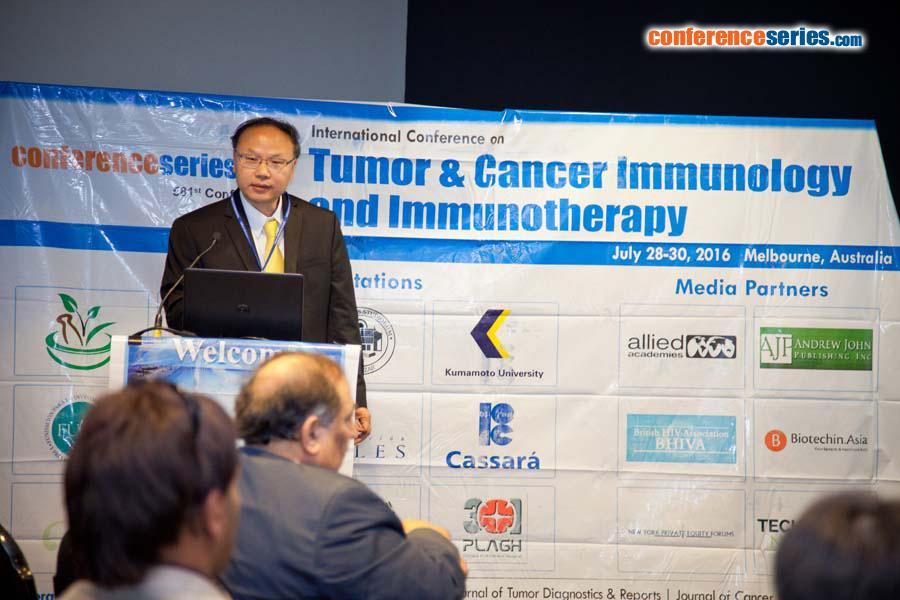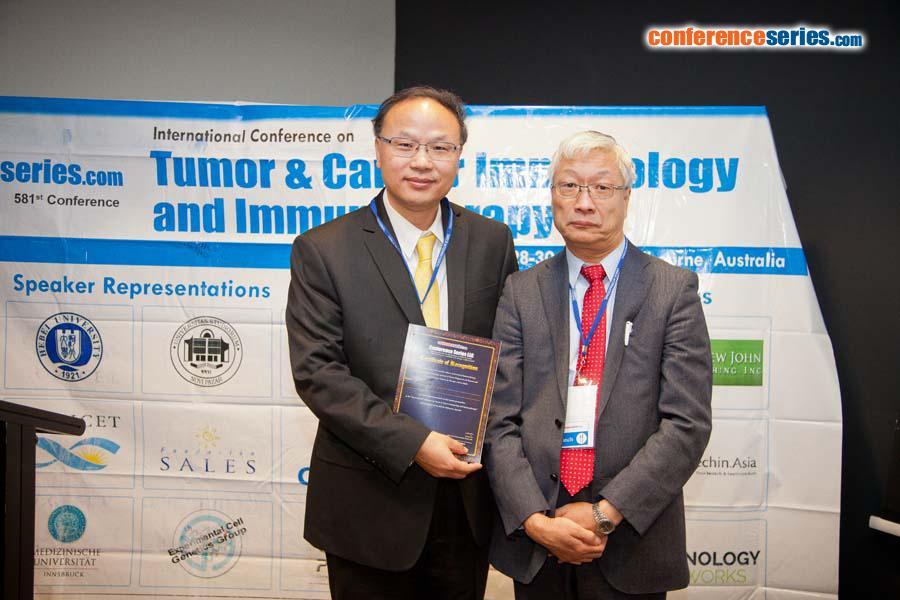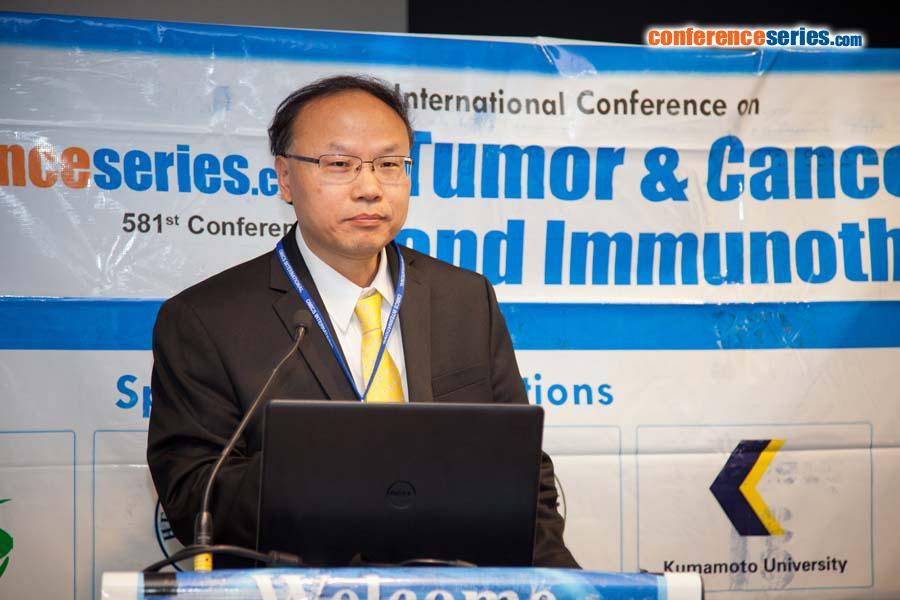
Liang Xu
University of Kansas Cancer Center, USA
Title: Antibody based immunotherapy targeting pancreatic cancer stem cells
Biography
Biography: Liang Xu
Abstract
CD44s is a surface marker of cancer stem cells (CSCs); high tumor levels correlate with metastasis and recurrence as well as poor outcomes of patients. Monoclonal antibodies against CD44s might eliminate CSCs with minimal toxicity. This strategy is unclear for treatment of pancreatic cancer and little is known about how anti-CD44s affect pancreatic cancer initiation or recurrence after radiotherapy. We measured CD44s levels in tissue samples and pancreatic cancer cell lines by immunohistochemistry, real-time PCR and immunoblot; levels were correlated with patient survival times. We studied the effects of anti-CD44s in mice with human pancreatic tumor xenografts and used flow cytometry to determine effects on TICs. Changes in CD44s signaling were examined by real-time PCR, immunoblot, reporter assay and in vitro tumorsphere formation assays. The levels of CD44s were significantly higher in pancreatic cancer than adjacent non-tumor tissues. Patients whose tumors expressed high levels of CD44s had a median survival of 10 months, compared to 43 months for those with low levels. Anti-CD44s reduced the growth, metastasis and post-radiation recurrence of pancreatic xenograft tumors in mice. The antibody reduced the number of CSCs in cultured pancreatic cancer cells and in xenografts as well as their tumorigenicity. Anti-CD44s down-regulated the stem cell self-renewal genes Nanog, Sox-2, and Rex-1, and inhibited the STAT3-mediated cell proliferation and survival signaling. The CSC marker CD44s is up-regulated in human pancreatic tumors and associated with patient survival time. CD44s is required for initiation, growth, metastasis and post-radiation recurrence of xenograft tumors in mice. Anti-CD44s eliminated bulk tumor cells as well as CSCs from the tumors. Immunotherapy targeting CD44s might be developed to block pancreatic cancer progression and post-radiotherapy recurrence in patients.




